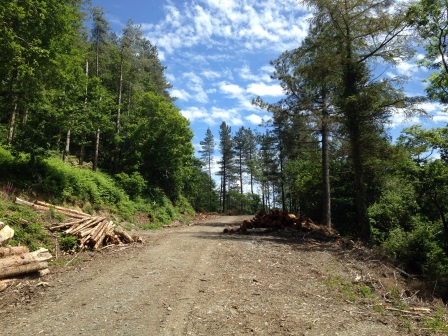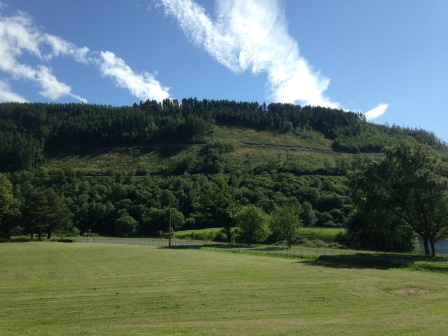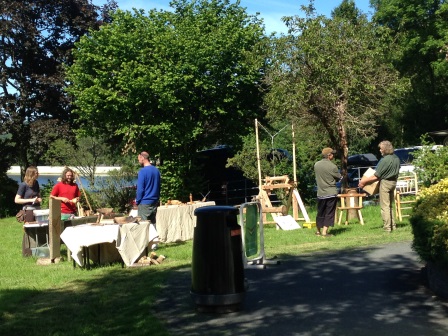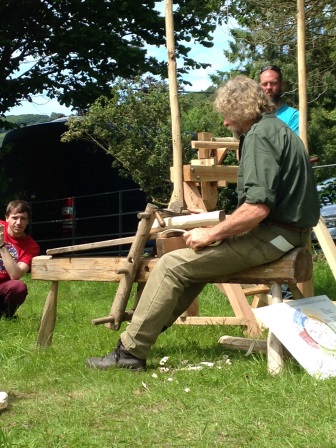In what seems like an endless crisscrossing of the country, I spent Friday in Aberystwyth at a symposium about craft, heritage and woodland. The symposium was the culmination of ‘Harvesting the Knowledge’, a joint project between Ceredigion Museum, Tir Coed (a charity which works to improve the quality of life for rural communities in Wales) and the local community, and was funded by the Happy Museum. I was there to talk about the work MERL and the Heritage Crafts Association have been doing to support crafts – the former in relation to craft objects, and the latter in relation to craft skills.
Like MERL, Ceredigion Museum has a large collection of objects relating to local craft and industry. And like MERL, Ceredigion Museum struggles to interpret the objects and to connect them to the processes by which they were made or used. One strand of ‘Harvesting the Knowledge’ has involved working with people with experience in greenwood crafts and woodland management to share knowledge about the craft objects in the collection. And one of the aims of the project is to promote social enterprise through traditional crafts, by creating a range of wood craft products which relate to the Museum’s collections to sell in the Museum shop (and hopefully helping to kick-start the participants’ self-employed careers).
The morning started with an introduction to the project from Alice Briggs, Assistant Curator at Ceredigion Museum. She explained the importance of marketing the new products in the right way, like emphasising that they were made by local craftspeople using local materials sourced from properly managed woodlands, and linking the products to the collections, the stories of the makers, and the tools used to make them. I think there is potential for a lot of ideas-sharing between Ceredigion and MERL in this respect, as I would like the MERL shop to feature more crafts and complement our collections.
Hilary Jennings from the Happy Museum Commission who, as ‘Happiness Associate’ possibly has the best job title ever, briefly explained the idea behind the Happy Museum project. She was followed by Ffion Farnell, Director of Tir Coed – which sounds like a really inspirational organisation! They use woodlands as a resource for social, economic and environmental enrichment, and even offer apprenticeships and accreditation. We then heard from Bob Shaw, a long-term woodsman, and Stuart Evans, designer and technician at the Museum.
The symposium was held at the Cwm Rheidol Visitor Centre in a beautiful valley with stunning scenery – and there was even a steam train passing by. It was a gorgeous day, and thankfully we were able to spend quite a bit of time outdoors, enjoying the sunshine and the woods. Bob talked us through the craft of bodging and gave us a demonstration of making a chair leg – from cleaving a log with a froe, to trimming with a side axe, rough shaping with a drawknife on a shave horse, and final shaping using gouges and chisels on a pole lathe. And in the afternoon, Phil Morgan of Sustainable Forest Management gave us a tour around the Cwm Rheidol woods and explained the work he has been doing to manage the woods in a sustainable way, working on the principle of ‘continuous cover’ (where you only fell selected trees within an area, rather than clear-felling an area).

Phil Morgan of Sustainable Forest Management gave us a tour of the woods and explained how he was managing these woods.
I’m keen to see what types of products are made and how they’re marketed, as I think there’s a lot that MERL can learn from this aspect of the project. But ‘Harvesting the Knowledge’ more generally really appeals to me – particularly as it gives the Museum a role in supporting craft skills and craft careers, and also traditional woodland management practices and careers. So I’m really keen to see what comes of it!



